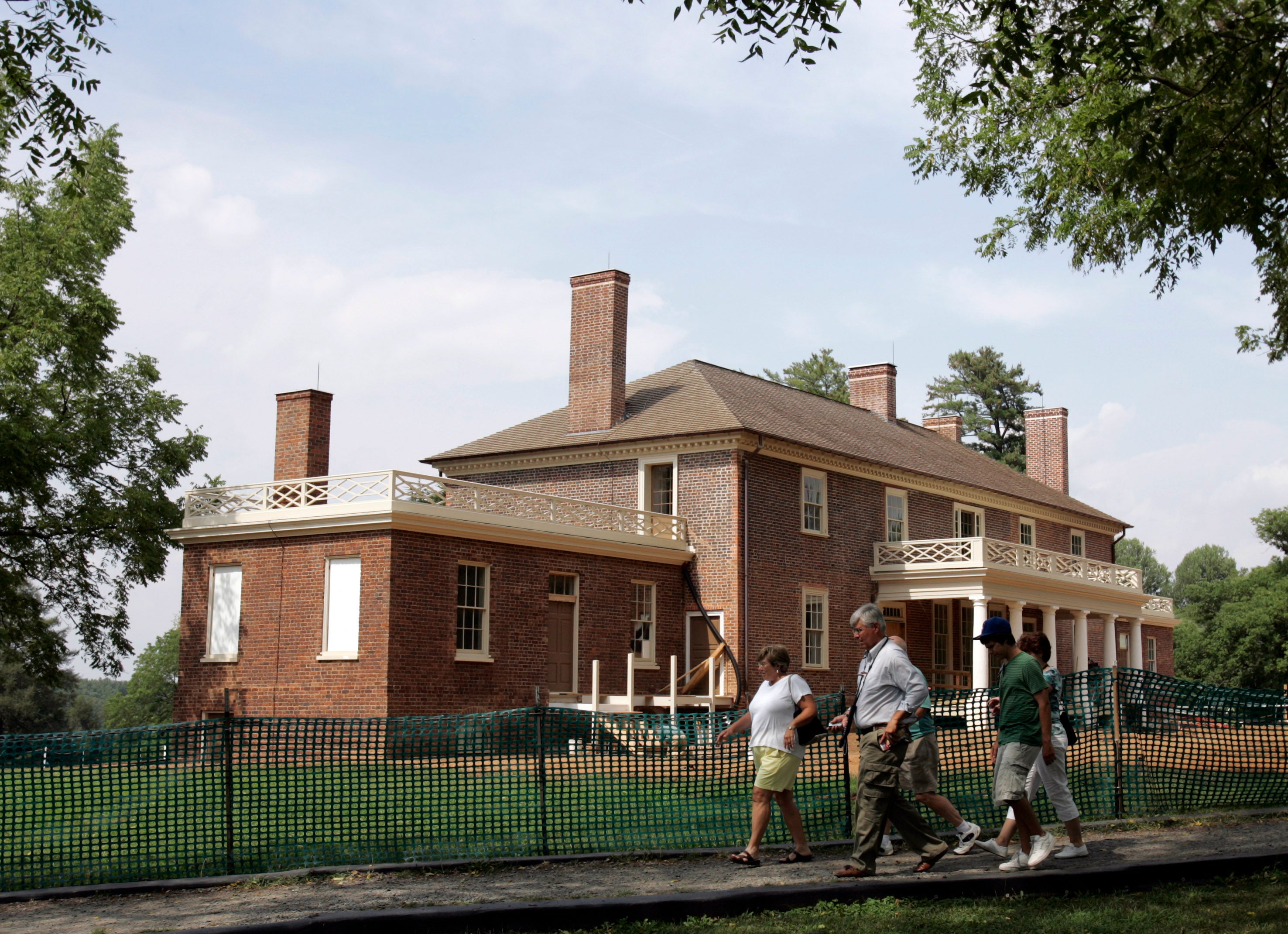Montpelier ends power-share with enslaved descendants group
The board that manages James Madison’s Montpelier estate in Virginia has voted to strip power-sharing status from a group representing descendants of people once enslaved there

Your support helps us to tell the story
From reproductive rights to climate change to Big Tech, The Independent is on the ground when the story is developing. Whether it's investigating the financials of Elon Musk's pro-Trump PAC or producing our latest documentary, 'The A Word', which shines a light on the American women fighting for reproductive rights, we know how important it is to parse out the facts from the messaging.
At such a critical moment in US history, we need reporters on the ground. Your donation allows us to keep sending journalists to speak to both sides of the story.
The Independent is trusted by Americans across the entire political spectrum. And unlike many other quality news outlets, we choose not to lock Americans out of our reporting and analysis with paywalls. We believe quality journalism should be available to everyone, paid for by those who can afford it.
Your support makes all the difference.Less than a year after the board that manages James Madison’s Montpelier estate in Virginia announced plans to share authority equally with descendants of people once enslaved there, the board has voted to strip power-sharing status from a group representing African Americans who trace their roots to the historic estate.
The Montpelier Descendants Committee chose three descendants of enslaved people serving on the board and the foundation picked another two, but Friday’s vote means the committee can’t name future members, giving the foundation greater control over the board’s makeup, The Washington Post reported.
“It is a complete reversal of their public commitment that was made on June 16, 2021,” said James French, head of the committee and a member of the Montpelier Foundation’s board. “It’s a rejection of the principle of equality of descendant voices and it’s very unfortunate, because it is a missed opportunity for Montpelier to make history.”
The last two years have seen heightened tensions between the board and the committee, while Montpelier’s reputation as a pioneer in empowering traditionally marginalized groups has grown.
At issue is how the estate frames the history surrounding Madison, the nation's fourth president who is known as the father of the Constitution.
The board “wants to continue telling the public a whitewashed narrative about the Constitution and its chief architect and deciding what should be said about the 300 people Madison owned,” Bettye Kearse, a board member who was put forward by the descendants committee, told the Washington Post in an email.
Foundation chairman Gene Hickok said the board isn’t backing away from its commitment to fully represent descendants on the board, an idea known as structural parity, but working with the committee has been difficult and the board wants to be able to choose descendant members from a wider pool.
“This is an effort to reset the process,” Hickok said. “It certainly doesn’t have the board backing away from parity. We are very committed to parity. The challenge has been organizationally getting there.”
The change upset many estate staffers, who say the committee of descendants has been a partner in interpreting the history of Madison, his family and the roughly 300 enslaved people who lived and died there over 140 years.
A majority of the roughly 40 full-time staffers urged the board not to approve the change in an unsigned resolution.
Paul Edmondson, the chief executive of the National Trust for Historic Preservation, which owns Montpelier, wrote to Hickok on Thursday, urging him not to go ahead with the bylaw change. The descendants chose the committee as their formal voice, he said, and the original commitment to give them equal seats on the board “acknowledged the right of the descendant community to define itself, rather than to be defined by the foundation. The newly proposed revisions to the bylaws would do the opposite.”